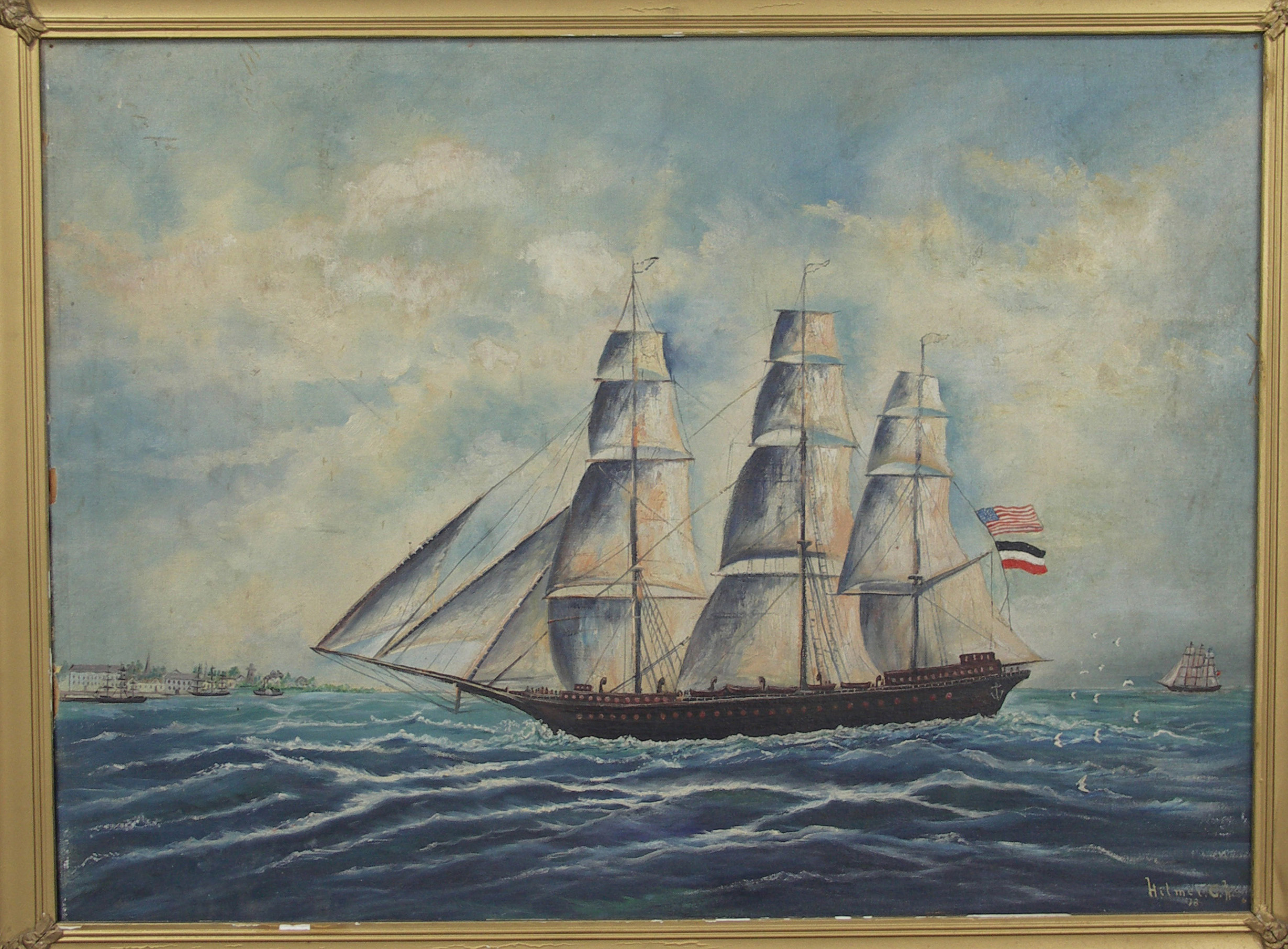June 22, 2012
Artifact: The Johann Georg
(oil painting by Rev. George H. Hilmer)
Date: 1937
Significance: The Johann Georg was one of five ships that carried members of the Saxon Emigration Society
to America in 1838/1839. C. F. W. Walther, first president of the Missouri Synod, sailed on the Johann Georg.
About the Scene:
The Johann Georg is pictured sailing up the Mississippi River, entering New Orleans (depicted on the left). Another ship is seen in the background on the right, coming up from the Gulf of Mexico. Hilmer pictured the ship as a three-masted “clipper.ˮ However, passenger lists of its 1839 voyages describe it as a “barkˮ (barque). The difference would be that the sails on the third mast aft on a bark would not have been square. An account of Hilmerʼs artistic work is found in “George Henry Hilmer: A Painter of Saxon Immigration Scenes,ˮ Concordia Historical Institute Quarterly 28 (Spring 1955): 27–34.
About the Ships of the Saxon Immigration:
The Saxon immigrants numbered nearly 700 people. One ship was certainly not large enough. The immigrants traveled on five ships—the Copernicus, Johann Georg, Republik, Olbers and Amalia. The first two left Bremerhaven on November 3, 1838, the Republik on November 12, and the last two on November 18. The immigrants faced hardships on the journey, including extensive storms and some deaths. They also experienced many new things on board, such as watching porpoises swimming alongside the ships and warm temperatures in December as they neared the Gulf of Mexico.
The first ship to arrive in America was the Copernicus, reaching New Orleans on December 31. Three more ships would arrive in the following weeks. One ship, however, never reached the United States. The Amalia was lost at sea, carrying seventy passengers. Rev. Otto Hermann Walther, older brother of C. F. W., wrote a stirring poem in response to the loss. Written as a dialogue with our Lord Jesus Christ, the poem gives both comfort and the Gospel message to the author and his fellow immigrants.
Here are the first two stanzas in English:
Lord Jesus, Lord Jesus, the ship has not come,
The ship named Amalia is missing!
When wilt Thou, O pilot, convey her back home
From the storms that are howling and hissing?
Have we, Lord, been favored Thy mercies to share?
Was their ship too small for Thy kindness and care?
Lord Jesus, come, still all our yearning
And hasten Amalia’s returning!
I granted her prayer
For kindness and care.
She was not too small
For tempest and squall.
My love went with her a-sailing,
My power and presence prevailing.
My sheep, neither hopeless nor craven,
Were led to a beautiful heaven.*
*Translated by W. M. Czamanske. Reprinted from August R. Suelflow, Servant of the Word: The Life and Ministry of C.
F. W. Walther (Saint Louis: Concordia Publishing House, 2000): 46, as quoted from the Concordia Junior Messenger 17 (March 1939).



